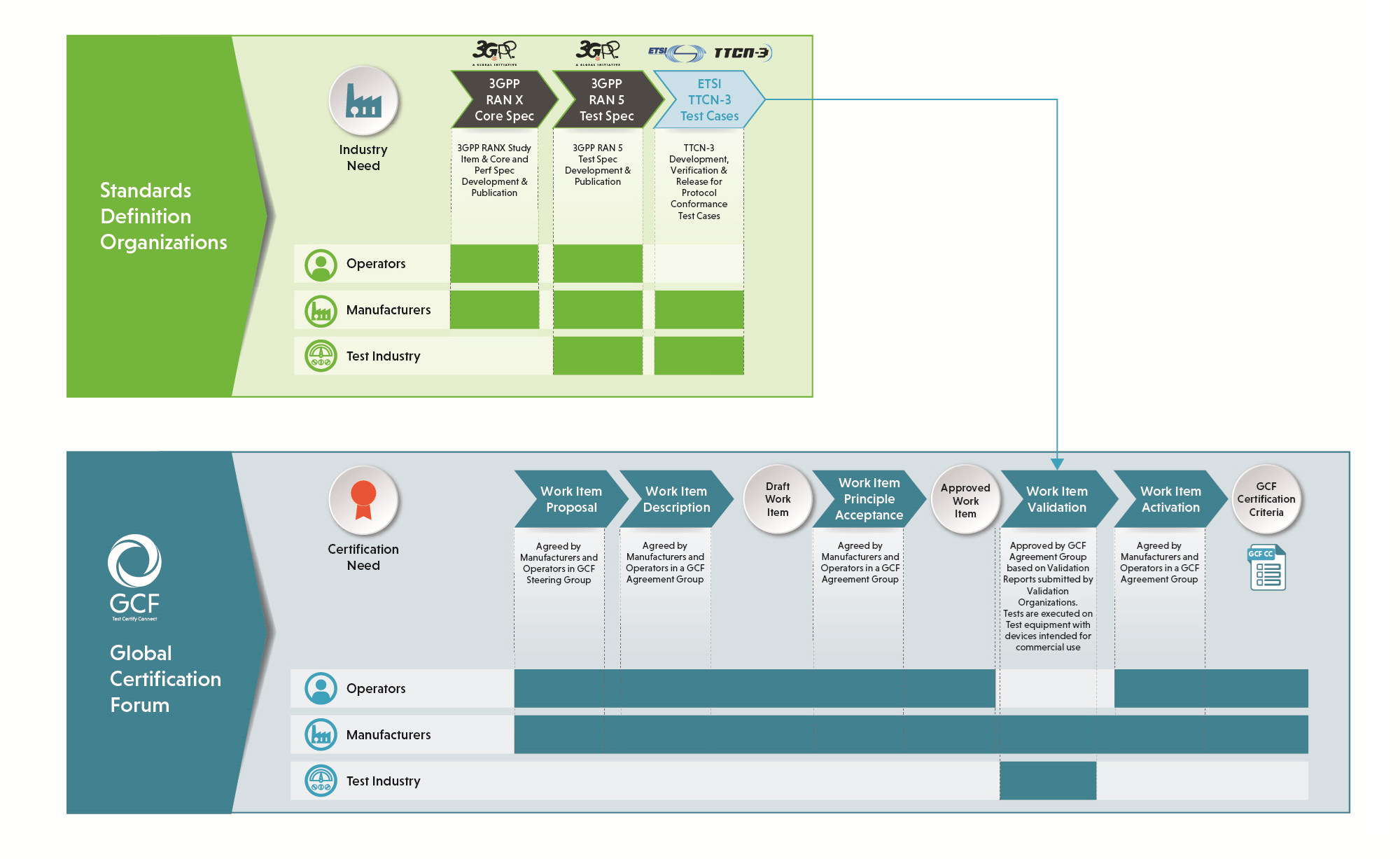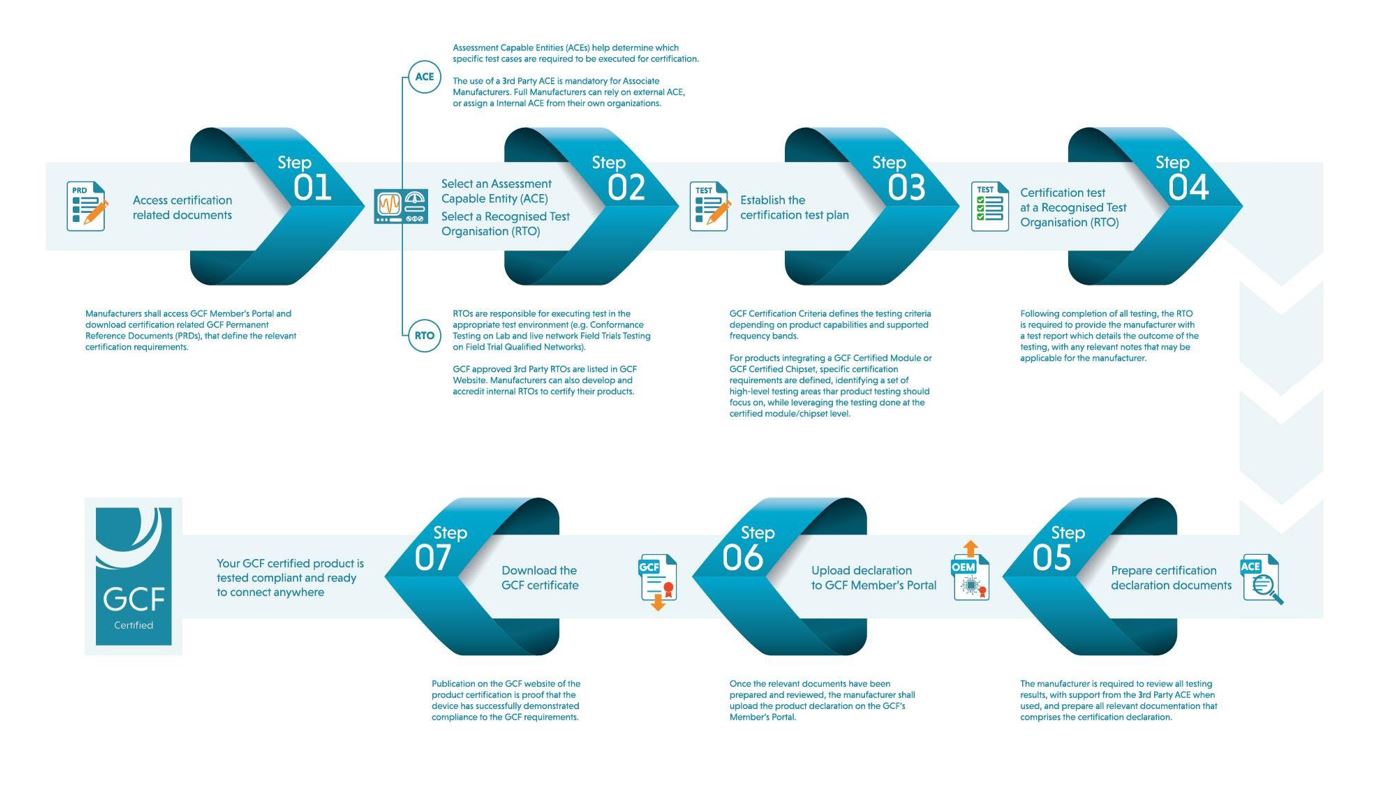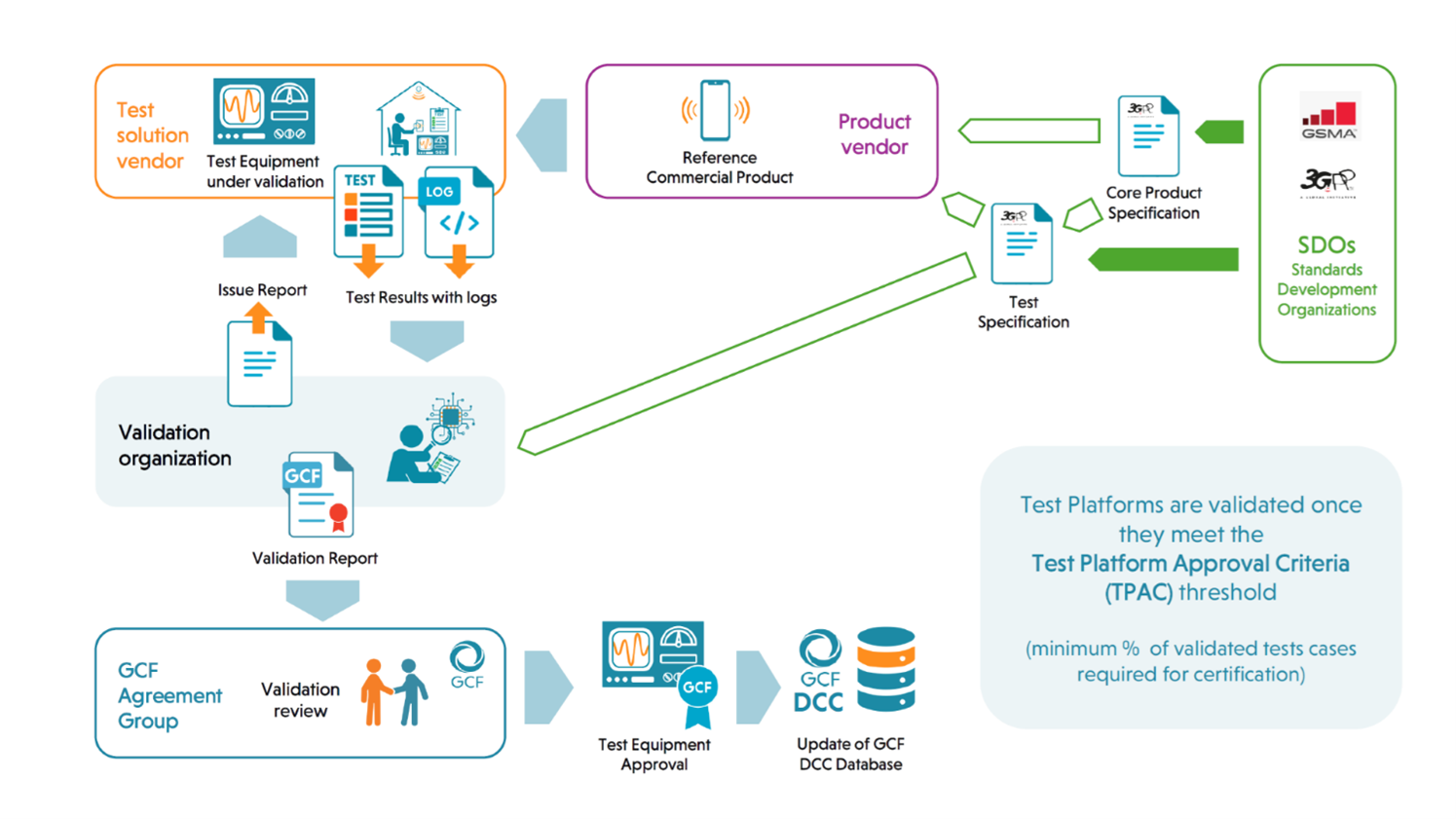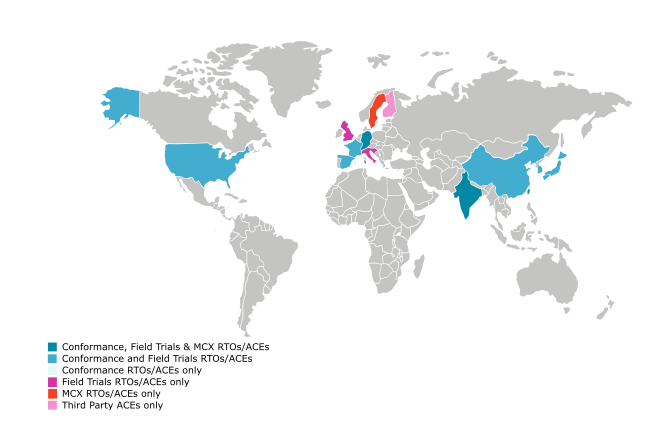GCF and the Test Industry: A Critically Important Partnership
- 18 Sep 2025
- Dervilla O'Shea - GCF Office
Testing, testing… It’s more than a microphone check, it’s the engine that keeps the mobile and IoT world connected. Every device, from a flagship 5G smartphone to the smallest IoT sensor, must prove it can work across networks worldwide. That’s where the Global Certification Forum (GCF) and the test industry come together.
GCF, a non-profit organisation with over 300 members worldwide, provides trusted certification programmes for mobile and IoT devices. Since 2000, we’ve certified more than 10,000 device models and over 600 additional products are certified every year. But none of this would be possible without our partners in the test industry: the recognised test organisations (RTOs), the assessment capable entities (ACEs), and the test equipment vendors (TEVs) who translate certification criteria into proven, repeatable tests.
Through conformance and field trial testing, the GCF certification process ensures that certified products meet international standards, interoperate smoothly across networks and reach the market quickly and reliably.

Figure 1: Test Industry in the work item introduction process at GCF
Why certification matters
Certification isn’t a nice-to-have - it’s a necessity. For any company producing a telecoms or wireless-enabled product, GCF certification proves that the device can connect to mobile networks worldwide. Without it, devices risk incompatibility, costly delays, or failed launches.
For mobile phone vendors, this process is familiar. But for IoT manufacturers - often integrating 4G LTE or 5G for the first time - the requirements can feel complex compared to license-free technologies like Bluetooth or Zigbee. This is where the test industry plays a critical role: guiding manufacturers through the GCF certification process, applying deep expertise and ensuring that certification is achieved smoothly and efficiently.
The backbone of GCF certification
Every GCF certification outcome rests on the test industry. These members aren’t just service providers; they are the backbone of global interoperability. Each brings a unique role to ensure that certified products connect seamlessly worldwide:
1. Recognised Test Organisations (RTOs) perform conformance testing in accredited laboratories and field trial testing providing the independent validation that certification demands.
2. Assessment Capable Entities (ACEs) advise manufacturers on the required tests and assess results to demonstrate compliance.
3. Test Equipment Vendors (TEVs) develop and validate the equipment and tools used in the certification process, ensuring tests are accurate, repeatable, and future-ready.
Working together, these three groups form a seamless chain. Whether it’s validating a new frequency band, testing enhanced device capabilities or supporting the rollout of next-generation standards, the test industry ensures that certification criteria are practical, reliable, and globally consistent.

Figure 2: Role of ACEs and RTOs within product certification process
Let’s look in more detail at each of the three types of test members, and the roles they play.
1. Recognised Test Organisation (RTOs)
All product testing associated with GCF certification must be undertaken by an ISO qualified, GCF-approved test facility, which we refer to as a Recognised Test Organisation (RTO).
RTOs are GCF members who have demonstrated they possess the experience, qualifications and systems to assess wireless mobile and IoT devices against GCF's certification criteria.
Today, GCF certification involves over 65 accredited RTOs in 11 countries around the world. RTOs can provide a general range of supported technologies, or can specialise in different certification areas and technologies, such as Mission Critical Services (MCS) or IoT technologies.
Besides the conformance testing in laboratories, GCF introduced real-world network testing in 2007, following specifications set by the GSMA Terminal Steering Group and executed on ‘Field Trial Qualified networks’ (FTQNs) designated by network operators. This practice has expanded globally, with nearly 40 field trial RTOs now operating across 10 countries.
A product certification does not need to be executed in a unique lab or RTO, and manufacturers can work with several RTO companies for different areas of the certification requirements. Additionally, manufacturers and operators can establish their own in-house conformance RTOs if they comply with all the quality accreditation requirements, and complement it, if needed, with external RTOs for certain areas.
RTO status is open to any GCF member that undertakes product testing, except for associate membership classes. Third party RTOs, who are not part of an operator or manufacturer that is already a GCF member, must hold a GCF observer membership.
2. Assessment Capable Entities (ACEs)
To complement RTOs, GCF created the role of third-party assessment capable entities (ACEs). These ACEs are subject matter experts who assist manufacturers (typically GCF associate manufacturer members) in certifying their devices.
Affiliated with accredited organisations, the ACEs possess the expertise to determine the necessary range of tests that are needed for device certification and then to evaluate the test results, thus making sure that products meet GCF’s certification criteria.
Once they can demonstrate in-depth knowledge of GCF procedures, member companies can apply to be a GCF Third-Party ACE at no additional cost. They also need to have a minimum of two years’ experience with GCF certification, although exceptions can be introduced by GCF for emerging technologies.
3. Test Equipment Vendors (TEVs)
Compliance with GCF certification criteria, for both conformance and RF test cases, can only be done using test platforms and equipment from test solution providers. Also referred as test equipment manufacturers, these companies design and supply specialised test equipment and the tools necessary for certifying mobile and wireless devices according to industry standards. This enables GCF-accredited test labs to evaluate the compliance, interoperability, and network performance of mobile devices.
GCF works alongside the industry’s major test equipment vendors. These companies have been instrumental in supplying RTOs with test platforms, certified for different accreditation scopes, which go through a stringent validation process.
For conformance testing, these platforms rely on the development, verification, and release of 3GPP TTCN-3 Protocol Conformance Test Suites, developed by 3GPP TF160 task force. These suites, based on 3GPP RAN5 Group’s test cases, are crucial for conformance testing. While 3GPP provides the foundational suites, some manufacturers and operators have developed their own proprietary test platforms.
A robust test validation process is required for test equipment to be validated in GCF for conformance testing purposes (see Figure 3). Test solution providers must have an observer membership within GCF.

Figure 3: Test equipment validation process
Enabling global innovation
Every year, more than 600 new products complete GCF certification — from the latest 5G handsets to IoT modules that power smart homes, connected cars, and industrial applications. Each device has been tested in RTOs, using solutions validated by the test providers and assessed with the expertise of ACEs.
In short, without the test industry, GCF certification would not exist. Their work ensures that devices launch faster, perform better, and connect seamlessly - enabling the innovation that drives the mobile and IoT ecosystem forward.

Figure 4: Global map for test industry
Further information
A wide range of information is available on the GCF website: https://www.globalcertificationforum.org/
This includes directories of companies offering relevant services:
- Third Party Assessment Capable Entities
- RTOs offering conformance testing services to third parties
- RTOs offering field trial testing services to third parties
You can also find a full list of GCF members at https://www.globalcertificationforum.org/membership/gcf-members-directory.html, and more information on the benefits of GCF membership at
https://www.globalcertificationforum.org/membership/become-a-member.html.
And that’s a wrap!

